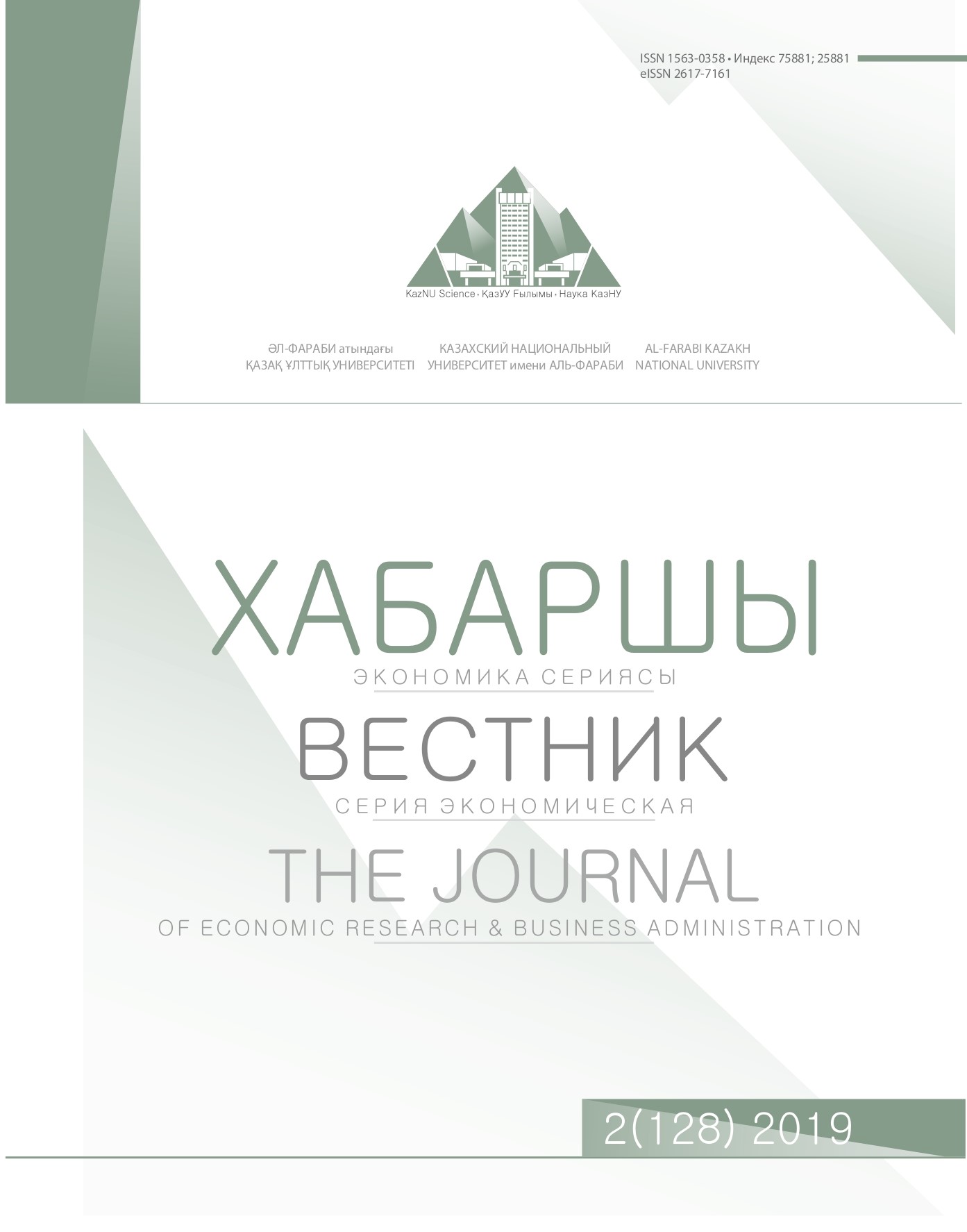Sustainable development system of aircraft enterprises of the Republic of Kazakhstan
DOI:
https://doi.org/10.26577/be.2019.v128.i2.07Abstract
The article deals with the effective functioning of civil aviation in modern conditions. The purpose of the study is to determine the factors affecting the sustainable development of airlines in the Republic of Kazakhstan. Identify the main objectives of the system of sustainable development – in maintaining the necessary equilibrium and minimizing the risk to the airline when changes in internal and external factors. The research hypothesis of the system of sustainable development of an aviation enterprise is unique for each particular airline and makes it impossible to use standard, typical approaches to its formation.
An important role in achieving sustainable development of enterprises is played by intensive and balanced use of its potential as the basis on which its external and internal reproduction processes are built and implemented. In this regard, the need to form a multi-level system of enterprise development management, which should be based on the rational use and construction of relationships between different
types and levels of activities, management hierarchy, areas of functional responsibility, resources,
is actualized. To achieve the goal set in the study, it is necessary to study and theoretically summarize the
data of different directions on the main economic indicators of the aviation industry of Kazakhstan, its
role in the development of the market economy of the country, as well as to analyze the system of building
management activities for the sustainable development of the airline and to concretize measures to
adapt the management system for the sustainable development of aviation enterprises of Kazakhstan to
the existing realities.













